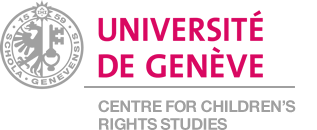Do children have a right to work? - Liebel, Manfred
Do children have a right to work? Working children’s movements in the struggle for social justice
The UN Convention on the Rights of the Child (CRC) confers upon children the right to protection from economic exploitation. This guarantee for protection is often understood as the obligation to prevent situations in which children have to work. In this sense the prohibition of child labour – for example in the International Labour Organization’s (ILO) conventions or national legislation – is being understood as the manifestation of a specific human right of the child, whose implementation is a prerequisite to the realization of other children’s rights, such as the right to education. Such interpretations tacitly assume that children’s work called child labour is synonymous to exploitation. What is more, they suggest that the prohibition of child labour and subsequent enforcement measures serve the interests of working children by putting an end to their exploitation. In this way the right to be protected from economic exploitation is reinterpreted to mean the (alleged) right to be ‘free of child labour’.
In opposition to this interpretation, working children’s organizations claim the ‘right to work’. This does not mean that any person has the right to demand that a child works, nor that children have to be guaranteed employment. As opposed to the right to employment, the right to work is understood as an individual child’s right to freely decide whether, where, how and for how long they would like to work. It goes beyond employment under the regime and dependency of an employer in a capitalist economy as well as beyond all kinds of economic activities outside the ‘official’ labour market (e.g. in the informal economy or private households) that children are obliged to carry out by persons who have power over them. The raison d’être of the claim is to broaden children’s scope for decision-making and to strengthen their social roles as acting subjects. It challenges the dominant legal conception that children’s rights are first and foremost the rights of adults to set a framework that fosters children’s best interests (see Liebel, 2012). Likewise, it opposes a conception of child protection that relies on exclusion measures and prohibitions to prevent children’s exposure to exploitation.
